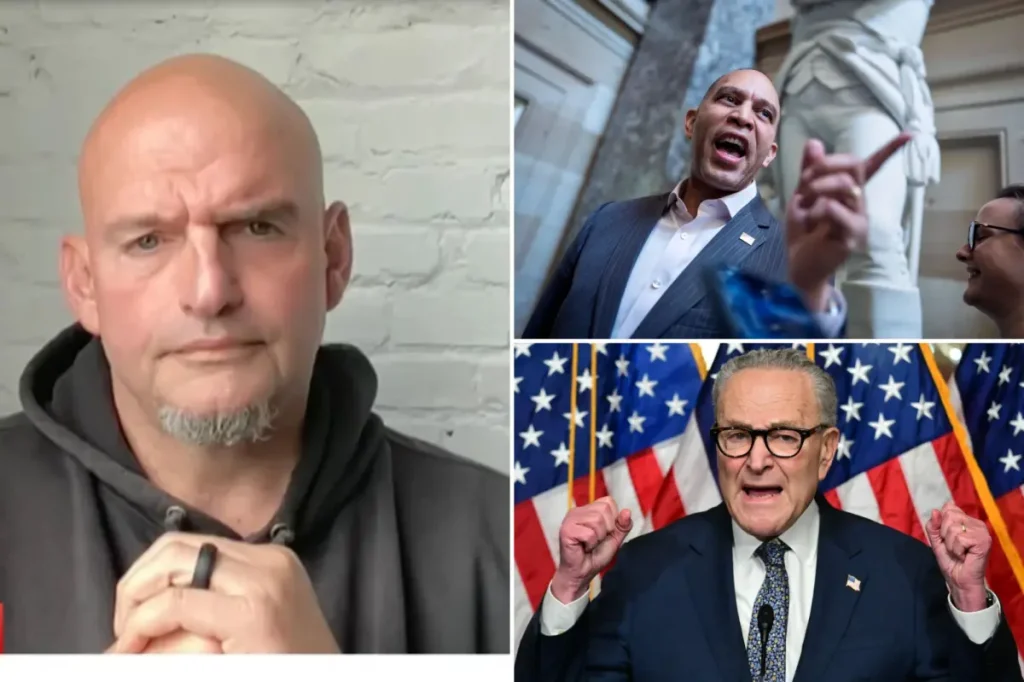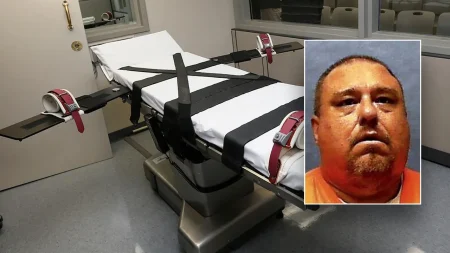Fetterman Criticizes Democrats for Government Shutdown and SNAP Funding Lapse
In a striking display of political candor, Pennsylvania Senator John Fetterman has taken the unusual step of publicly criticizing his own Democratic Party for the ongoing government shutdown, particularly highlighting his concerns about the lapse in food assistance programs that affect millions of Americans. Speaking on CNN’s “State of the Union,” Fetterman expressed profound distress over the 42 million Americans who stand to lose their Supplemental Nutrition Assistance Program (SNAP) benefits as a result of the shutdown. Breaking ranks with party leadership, he stated bluntly, “I feel like the Democrats really need to own the shutdown. I mean, we’re shutting it down.” This rare internal criticism reflects Fetterman’s growing frustration with what he perceives as his party moving against its core values in the current political standoff.
The Pennsylvania senator has emerged as one of just three Democratic-caucusing senators who voted against blocking a “clean” stopgap measure that would have reopened the government, joining Senators Catherine Cortez Masto of Nevada and Angus King, an Independent from Maine who caucuses with Democrats. Fetterman’s opposition to his party’s strategy has been vocal and consistent, even going so far as to suggest that Republicans should consider the dramatic “nuclear option” of eliminating the 60-vote threshold required to break a filibuster. His position stems from a deeply personal connection to the consequences of government dysfunction—his wife runs a free store providing food to those in need, giving him a firsthand view of how political battles in Washington translate to real hardship for vulnerable Americans.
The current impasse centers on Democrats’ efforts to use the government shutdown as leverage to secure concessions from Republicans on Medicaid and enhanced Obamacare subsidies. However, as the political standoff continues, funding for critical programs like SNAP officially ran out on Saturday, though a court has temporarily directed the Department of Agriculture to utilize contingency funds to maintain the program for a few additional weeks. The situation has created widespread uncertainty, with President Trump announcing he has asked his legal team to clarify what actions are possible under the law, citing conflicting court rulings. Meanwhile, the human cost of the shutdown continues to mount, with federal workers reportedly having to borrow more than a third of a billion dollars simply to pay their bills during the funding lapse.
“This is an absolute fail,” Fetterman declared in his CNN appearance, characterizing the situation as “embarrassing” and highlighting the contradiction he sees in his party’s current position. “These are the kinds of people why I’m a Democrat, fighting for people just like that,” he emphasized, referring to those reliant on programs like SNAP, WIC (Women, Infants & Children), and Head Start. “It seems like we’re moving against our core values to keep our government shut down.” His criticism represents a significant break from party messaging discipline at a critical political moment and reflects his populist approach to politics, which often prioritizes direct economic issues affecting working-class constituents over broader political strategy.
While Fetterman acknowledged his agreement with the Democrats’ overall policy goal of extending the enhanced Obamacare subsidies scheduled to expire at year’s end, he expressed profound skepticism about the tactics being employed. “Right now, by doing this, our government shutdown, we’re getting neither of those things, and they guarantee neither,” he observed, highlighting the practical ineffectiveness of the current approach. The senator’s critique suggests a growing concern that Democrats may be miscalculating by pursuing a strategy that creates immediate hardship for vulnerable populations while offering no guaranteed policy victories. His straightforward assessment cuts through partisan positioning to focus on the tangible consequences for Americans depending on government services.
Fetterman’s proposed solution reflects his pragmatic approach to governance: “Reopen this thing, and we can find a way forward. That’s the way democracy operates for right now.” This call for de-escalation and return to normal legislative processes represents a challenge not just to Republican opponents but to his own party’s leadership and strategy. By positioning himself as a voice for practical governance and immediate relief for suffering Americans, Fetterman is carving out a distinct political identity within the Democratic Party—one that prioritizes tangible results for vulnerable constituents over partisan standoffs. His willingness to publicly break with party leadership on such a high-profile issue suggests both his independence and his calculation that voters will reward principled stands over party loyalty when basic government functions and essential services are at stake.











